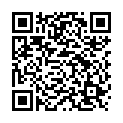|
|
|
| Module code: KI857 |
|
4V (4 hours per week) |
|
5 |
| Semester: 2 |
| Mandatory course: no |
Language of instruction:
English |
Assessment:
Project
[updated 26.02.2018]
|
KI857 Computer Science and Communication Systems, Master, ASPO 01.04.2016
, semester 2, optional course, general subject
KIM-HUMF (P221-0113) Computer Science and Communication Systems, Master, ASPO 01.10.2017
, semester 2, optional course, general subject
MAM.2.2.6 (P221-0113) Engineering and Management, Master, ASPO 01.10.2013
, semester 8, optional course, not informatics specific
PIM-WN16 (P221-0113) Applied Informatics, Master, ASPO 01.10.2011
, semester 2, optional course, not informatics specific
PIM-HUMF (P221-0113) Applied Informatics, Master, ASPO 01.10.2017
, semester 2, optional course, not informatics specific
PIM-HUMF (P221-0113) Applied Informatics, Master, SO 01.10.2026
, semester 2, optional course, not informatics specific
Suitable for exchange students (learning agreement)
|
60 class hours (= 45 clock hours) over a 15-week period.
The total student study time is 150 hours (equivalent to 5 ECTS credits).
There are therefore 105 hours available for class preparation and follow-up work and exam preparation.
|
Recommended prerequisites (modules):
None.
|
Recommended as prerequisite for:
|
Module coordinator:
Prof. Steven Frysinger |
Lecturer:
Prof. Steven Frysinger
[updated 11.02.2009]
|
Learning outcomes:
After successfully completing this module, students will be able to:
- Describe the anthropometric, ergonomic, and cognitive abilities and limitations of humans in the context of their use of such systems as automobiles, tools, workstations, and computing systems;
- Conduct critical analyses of systems with respect to the degree and effectiveness of integration with users_ characteristics;
- Identify and characterize the users of a particular product or process to be designed;
- Gather and analyze needs assessment data from representative users of a product or process;
- Develop a hierarchical task analysis of the users;
- Develop both a conceptual design and a physical design of a product or process;
- Write a user requirements specification for the system;
- Develop a test plan by which their system design could be submitted to summative evaluation upon implementation.
[updated 26.02.2018]
|
Module content:
The course content will include some (but not necessarily all) of the following topics, adjusted in part based upon the backgrounds and interests of the students:
1. Introduction to Human Factors
2. Research Methods
3. Design and Evaluation Methods
4. Visual Sensory System
5. Auditory, Tactile, and Vestibular System
6. Cognition
7. Decision Making
8. Displays
9. Controls
10. Engineering Anthropometry and Workspace Design
11. Biomechanics at Work
12. Work Physiology
13. Stress and Workload
14. Safety, Accidents, and Human Error
15. Human-Computer Interaction
16. Automation
17. Transportation Human Factors
18. Selection and Training
19. Social Factors
[updated 26.02.2018]
|
Recommended or required reading:
An Introduction to Human Factors Engineering by Christopher D. Wickens, John Lee, Yili Liu & Sallie E. Gordon-Becker (2nd edition) 2003
[updated 26.02.2018]
|
Module offered in:
SS 2020,
SS 2019,
SS 2018,
SS 2017,
SS 2016,
...
|


